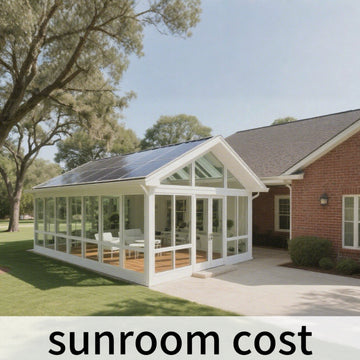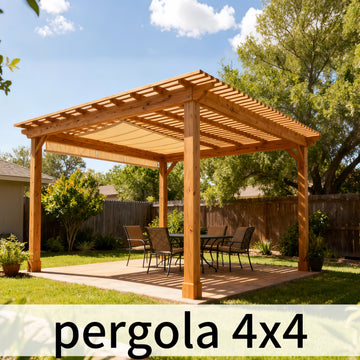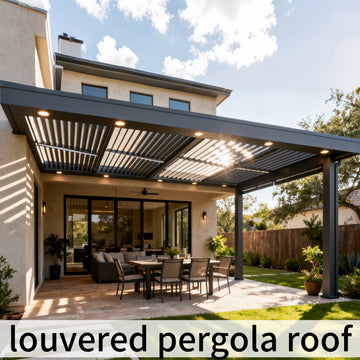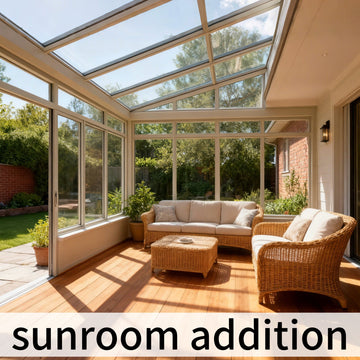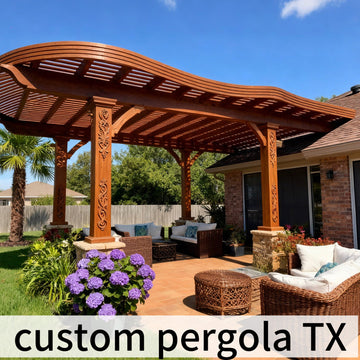At paradisedecor, we understand that a sunroom is more than just an addition to your home; it's a lifestyle upgrade. If you're considering adding a sunroom in Texas, knowing what influences the investment is crucial. Let's explore the main factors.
Sunroom Types: A Fundamental Consideration
Three - Season Sunrooms
In Texas, three - season sunrooms are popular. They're designed for use in spring, summer, and fall. With screens and lightweight glass, they offer great ventilation and natural light during warmer months. But they lack the extensive insulation for year - round use. This type of sunroom is often a favorite among homeowners in cities like Houston, where the milder winters make three - season usage practical. However, the materials used, such as the framing and glass quality, can significantly affect the overall project.
Four - Season Sunrooms
For those in areas like Dallas, where the climate can be more extreme, four - season sunrooms are a better option. These sunrooms are fully insulated and need to be connected to your home's HVAC system. As a result, they require more robust construction materials. The installation of proper insulation, additional electrical wiring for climate control, and potentially more energy - efficient windows are all elements that come into play when planning a four - season sunroom in Austin or other Texas cities.
Solariums and Conservatories
If you're aiming for a high - end look, solariums and conservatories might be your choice. These are typically enclosed entirely in glass, providing a stunning view of the outdoors. In a city like San Antonio, where aesthetics are highly valued, solariums and conservatories can be customized with different types of glass, elaborate framing, and advanced climate - control systems. However, these features also contribute to a more complex and resource - intensive project.
Size: A Major Determining Factor
The size of your sunroom is a key element. In Fort Worth, for example, a 200 - square - foot sunroom addition will require more materials than a smaller one. Larger sunrooms need more framing, glass, flooring, and roofing materials. Additionally, the installation time may be longer, which can impact the overall investment. Whether you're in a small suburban home in Plano or a larger property in Corpus Christi, the square footage of your sunroom will have a direct bearing on the resources needed.
Materials: Quality and Cost
Framing Materials
When it comes to framing, you have options. Aluminum is lightweight, durable, and requires minimal maintenance. It's a cost - effective choice, especially for budget - conscious homeowners in El Paso looking to build a DIY sunroom. Vinyl, on the other hand, offers excellent insulation properties and is resistant to fading, cracking, and warping. But it may come at a higher price. Wood provides a classic, elegant look and good insulation, but it requires regular maintenance. Each option has its own impact on the overall project.
Glass Options
The type of glass you choose also matters. Standard single - pane glass is the most basic option. However, if you're looking for better insulation, double - pane or triple - pane glass is a better choice. Tinted glass can also be an option, especially in sunny Texas, to reduce heat and glare. In cities with extreme temperatures, like Dallas, investing in high - quality, energy - efficient glass can be beneficial in the long run, even though it may increase the initial investment.
Professional Services: Luxury vs. Standard
If you're envisioning a luxury sunroom in Corpus Christi, professional services play a significant role. Luxury sunrooms often require highly skilled contractors with experience in complex designs and high - end finishes. These professionals can ensure that every detail, from the custom - made windows to the intricate ceiling design, is executed perfectly. In contrast, a more standard sunroom in a smaller town may require less specialized labor, which can affect the overall investment.
Permit Requirements: A Necessary Aspect
In Arlington and other Texas cities, permit requirements can impact your sunroom project. Different municipalities have different regulations regarding the construction of sunrooms. Some may require permits for structural changes, while others may have specific rules about the size and location of the sunroom on your property. Understanding and complying with these permit requirements is essential. Failure to do so can lead to costly fines and delays, adding to the overall investment in your sunroom project.
In conclusion, at paradisedecor, we're here to guide you through every step of the sunroom - building process in Texas. Whether you're in Houston, Austin, or any other city in the Lone Star State, understanding these factors will help you make informed decisions about your sunroom project.

